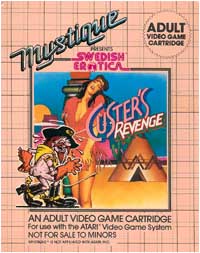Unless Your Name is Endy Chavez, I Don't Want to Talk to YouAnd let's just say I won't be jumping all over that Aaron Heilman proposal.
I wanted to touch on yesterday's
New York Times article, the umpteenth piece basically saying, "Wow, there are a lot of big books this Fall!" I wrote one myself over at M.J.'s blog, and while I admit it wasn't particularly insightful, it probably does show how much people are buzzing about how many major authors have books dropping between now and Christmas (not even counting Grinfrey's, which comes out December 26th).
That said,
Sarah again had a terrific point in that people are largely looking at this influx as negative (each book has a shorter shelf life, because next week three others will take its place, so many titles might underperform). Of course the negativity comes from each publisher as an individual, as each house wants the best placement for its Fall books and has a ton of money at stake. Her point is that the-glass-is-half-full argument should be that with so many big books coming out, bookstore traffic could increase, which would lead to a boom for the entire industry.
It's no secret that the biggest book season every year (barring Christmas) is whenever a new Harry Potter is released in hardcover. The Bookscan sales charts go through the roof, and not just for Potter titles. More people are in stores, more people are buying other books besides Harry, and all is (sort of) right with the world.
Of course, there's no Harry coming out this Fall. What will hopefully happen, though, is that the cumulative effect of all these blockbusters will have more people reading, more people in stores, more people buying books (whether from established authors or, even better, giving newbies a try).
Buying the new Stephen King might renew someone's passion for horror novels, so they give Sarah Langan's debut
THE KEEPER a shot.
THIRTEEN MOONS might make a reader ache for some more historical fiction, and grab a copy of Robert Hicks's
THE WIDOW OF THE SOUTH in paperback.
All this talk about Thomas Pynchon's
AGAINST THE DAY might make someone go out and read his spellbinding novel
THE CRYING OF LOT 49.
Laurell K. Hamilton's
MISTRAL'S KISS might make readers pine for more vampire tales, so they go check out Charlie Huston's
ALREADY DEAD and
NO DOMINION. Then they'll check out Charlie's other work, get in the mood for some badass noir, and read Duane Swierczynski's
THE WHEELMAN and
THE BLONDE.
Maybe someone will read
AMERICA: The Book in paperback, then check out Thomas Harris's
HANNIBAL RISING, be hungry for some fava beans, a nice chianti, some chopped liver, mixed in with a little comedy, and pick up a copy of Amy Sedaris's funny and lavishly designed cooking/entertaining guide,
I LIKE YOU. And then a copy of
JEWTOPIA just because.
Bottom line, too many books, not enough co-op space, but hopefully many more happy and hungry readers.
Also wanted to touch on
Teresa Nielsen Hayden's blog post responding to the
Wall Street Journal piece on the climate of blockbuster books. I agree with much of what she says, but in the end most publishers still do look for that "franchise" author, the one who can churn out books on a semi-regular (if not yearly) basis, adding considerably to the bottom line. When a blockbuster works, like THE THIRTEENTH TALE and THE HISTORIAN, the windfall for the publisher (and author) is astronomical.
But at the same time, most publishers have divisions that "pay the bills," releasing relatively inexpensive books that sell well and continue to backlist (such as business and reference). These are books often fly under the rader because they're "unsexy," published with little or no fanfare, but rake in the dollars year after year (and the backlist is the lifeblood for most publishers). Give any publisher a business author with a decent message and dozens of annual speaking engagements, and they'll be quite happy for a long time.
And let's keep in mind that, in the end, the
Journal, as well as any other news source, wants to write pieces that
are sexy. Blockbusters and million dollar advances are sexy.
Jim Collins's FROM GOOD TO GREAT is not sexy. Though I'll give anyone three guesses as to which one brings in the most dough.
















